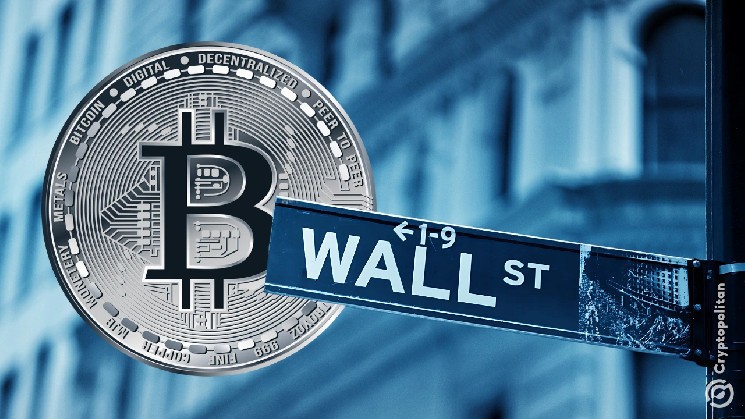Bitcoin’s surge prove Wall Street’s crypto converts right

Bitcoin smashed through the $100,000 mark this month, erasing doubts about the career choices of Wall Street elites who risked everything for crypto. These weren’t small-time players—they were Ivy League graduates and high-powered financiers from companies like Morgan Stanley and BlackRock.
They ditched secure, well-paying jobs for the unpredictable world of blockchain. For a while, it looked like they made the wrong call. FTX crumbled, Bitcoin tanked to $16,000, and crypto’s reputation hit rock bottom. Family, friends, and former colleagues couldn’t help but say, “Told you so.”
Then came 2024. Bitcoin’s rally rewrote the narrative. Donald Trump’s shock election victory in November triggered a price explosion, revitalizing an industry many on the NYSE board had written off. Crypto companies are hiring again, venture capital is flowing into blockchain projects, and the markets are alive.
The resurgence has given these risk-takers not only financial relief but also validation. Vivek Raman, a Yale graduate and former Wall Street trader, left behind nearly a decade of stability for crypto during the last bull run. He took a 75% pay cut and joined a blockchain startup.
“2024 changed it all,” Raman said. His startup, Etherealize, now focuses on bridging Wall Street and Ethereum ecosystems. He reportedly said he spent years asking himself, “Why aren’t we trading bonds on blockchains?” Now, the industry seems ready to answer that question.
The tough road from TradFi to crypto
Raman isn’t alone. Wall Street veterans who moved to crypto have lived through cycles of extreme highs and lows. Patrick Liou, a former BlackRock trader, saw Bitcoin hit $50,000 on his first day in crypto. But by 2022, everything fell apart.
Bitcoin crashed, offices emptied, and the stigma around crypto careers became suffocating. Liou admitted there were moments he thought about returning to traditional finance. “But it takes belief and courage to stick through it,” he said.
Liou now works as a principal at Gemini, one of the few companies to survive the crypto winter intact. The recent rally has turned the tide. A friend thanked him for a 3x return on Bitcoin purchased years ago, while an old mentor called to congratulate him.
When Bitcoin hit $100,000, Liou reportedly celebrated at Pubkey, the Bitcoin-themed bar in New York famous for hosting president Donald Trump during his campaign. “I finally convinced my wife to come with me,” he joked.
Zach Pandl, once a senior economist at Goldman Sachs, now leads research at Grayscale Investments. He saw the current Bitcoin rally as more subdued but still transformative. Unlike earlier bull runs, this one is backed by institutional capital from giants like BlackRock and Fidelity.
Michael Harvey, who moved to crypto giant Galaxy Digital in 2023 after nearly two decades in finance, recalled the doubts he faced when switching industries. On his first day, a colleague gave him a bottle of Johnnie Walker Blue Label as a joke.
It sat unopened on his desk for over a year. But now, with Bitcoin up over 500% from its 2022 lows, Harvey said he’s finally considering breaking it open. “This year’s been good,” he said, according to the report.
Do Bitcoin and Wall Street even go together?
Bitcoin and Wall Street make an odd couple, like oil and water—or maybe like bankers and trust. For years, Wall Street dismissed Bitcoin as some anarchist experiment, too volatile and chaotic for the buttoned-up world of traditional finance.
But now? The suits are lining up to get a piece of the action, calling it a “hedge” or an “alternative asset class” while carefully avoiding words like “revolution” or “decentralization.”
But Wall Street loves a good story, and this one has legs, especially when the Federal Reserve keeps printing money like it’s going out of style. Adding Bitcoin to portfolios gives institutions something to parade around at investor meetings. “Look, we’re hip and forward-thinking!”
Meanwhile, Bitcoin’s meteoric rise—up over 500% since the depths of 2022—means the returns are hard to ignore, even for the skeptics.
But here’s the thing: Bitcoin and Wall Street still don’t really mix. Wall Street wants control, stability, and predictability. Bitcoin offers the opposite. Its price swings like a wrecking ball, jumping over $108,000 one Monday and slipping below $92,000 the next.
Wall Street might claim to embrace volatility, but when things get messy, they’re quick to pull the plug. So when Wall Street starts offering Bitcoin ETFs or custody services, they’re not “joining the revolution.” They’re just finding ways to skim off the top.
The culture clash is real. Bitcoin’s core ethos is about financial sovereignty, putting power back in the hands of people. Wall Street is about squeezing out profits wherever possible, often at the expense of the people. So, do they go together? Technically, yes. Philosophically? Not a chance.
From Zero to Web3 Pro: Your 90-Day Career Launch Plan




 Bitcoin
Bitcoin  Ethereum
Ethereum  Tether
Tether  Dogecoin
Dogecoin  USDC
USDC  Cardano
Cardano  TRON
TRON  Chainlink
Chainlink  Hedera
Hedera  Stellar
Stellar  Bitcoin Cash
Bitcoin Cash  LEO Token
LEO Token  Litecoin
Litecoin  Cronos
Cronos  Ethereum Classic
Ethereum Classic  Monero
Monero  Dai
Dai  Algorand
Algorand  OKB
OKB  Cosmos Hub
Cosmos Hub  Stacks
Stacks  Theta Network
Theta Network  Gate
Gate  Tezos
Tezos  Maker
Maker  KuCoin
KuCoin  IOTA
IOTA  Zcash
Zcash  NEO
NEO  Polygon
Polygon  Synthetix Network
Synthetix Network  Tether Gold
Tether Gold  Dash
Dash  TrueUSD
TrueUSD  Holo
Holo  Zilliqa
Zilliqa  0x Protocol
0x Protocol  Enjin Coin
Enjin Coin  Basic Attention
Basic Attention  Qtum
Qtum  Siacoin
Siacoin  Ravencoin
Ravencoin  Decred
Decred  NEM
NEM  DigiByte
DigiByte  Ontology
Ontology  Nano
Nano  Bitcoin Gold
Bitcoin Gold  Huobi
Huobi  Status
Status  Lisk
Lisk  Waves
Waves  Hive
Hive  Numeraire
Numeraire  Steem
Steem  Pax Dollar
Pax Dollar  OMG Network
OMG Network  BUSD
BUSD  Ren
Ren  Bitcoin Diamond
Bitcoin Diamond